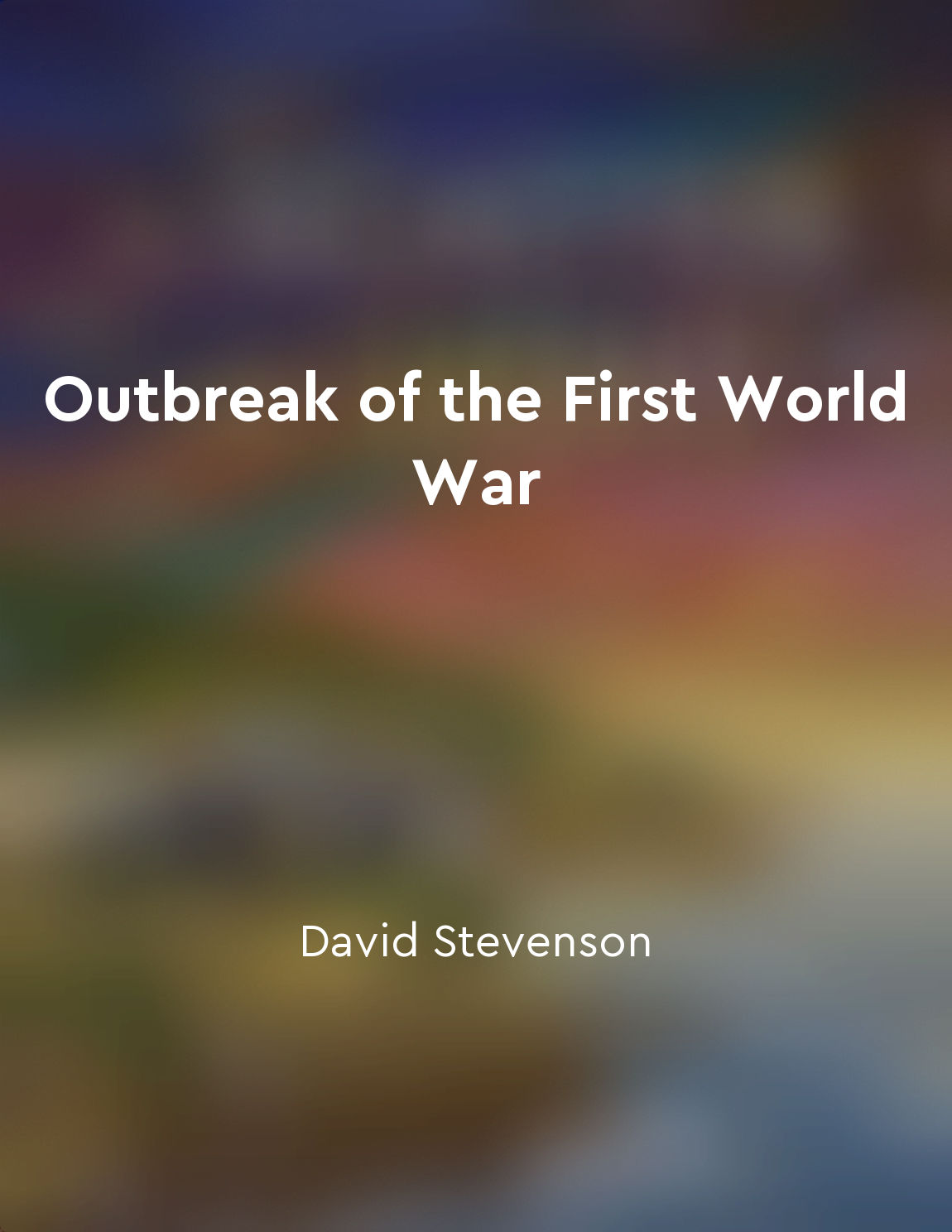Treaty of Versailles from "summary" of Outbreak of the First World War by David Stevenson
The Treaty of Versailles, signed on June 28, 1919, was a peace settlement that officially ended World War I. The treaty was a product of the Paris Peace Conference, which convened in January 1919 with the aim of establishing a lasting peace in Europe. The treaty was primarily negotiated by the "Big Three" Allied powers - France, Great Britain, and the United States. The Treaty of Versailles imposed significant penalties on Germany, holding them responsible for the war and requiring them to pay reparations to the Allied powers. The treaty also imposed territorial losses on Germany, including the relinquishment of Alsace-Lorraine to France and the cession of territories to Belgium, Denmark, and Poland. Additionally, Germany was required to demilitarize the Rhineland and limit the size of its army. The treaty also established the League of Nations, an international organization aimed at promoting peace and cooperation among nations. However, the United States, led by President Woodrow Wilson, ultimately did not join the League of Nations, weakening its effectiveness. The harsh terms of the Treaty of Versailles have been widely criticized for contributing to the rise of Adolf Hitler and the outbreak of World War II. The treaty's imposition of reparations on Germany led to economic hardship and political instability, providing fertile ground for extremist ideologies to take hold.- The Treaty of Versailles was a flawed peace settlement that failed to address the underlying issues that had led to World War I. It reflected the desire of the victorious Allied powers to punish Germany rather than promote a lasting peace in Europe.


